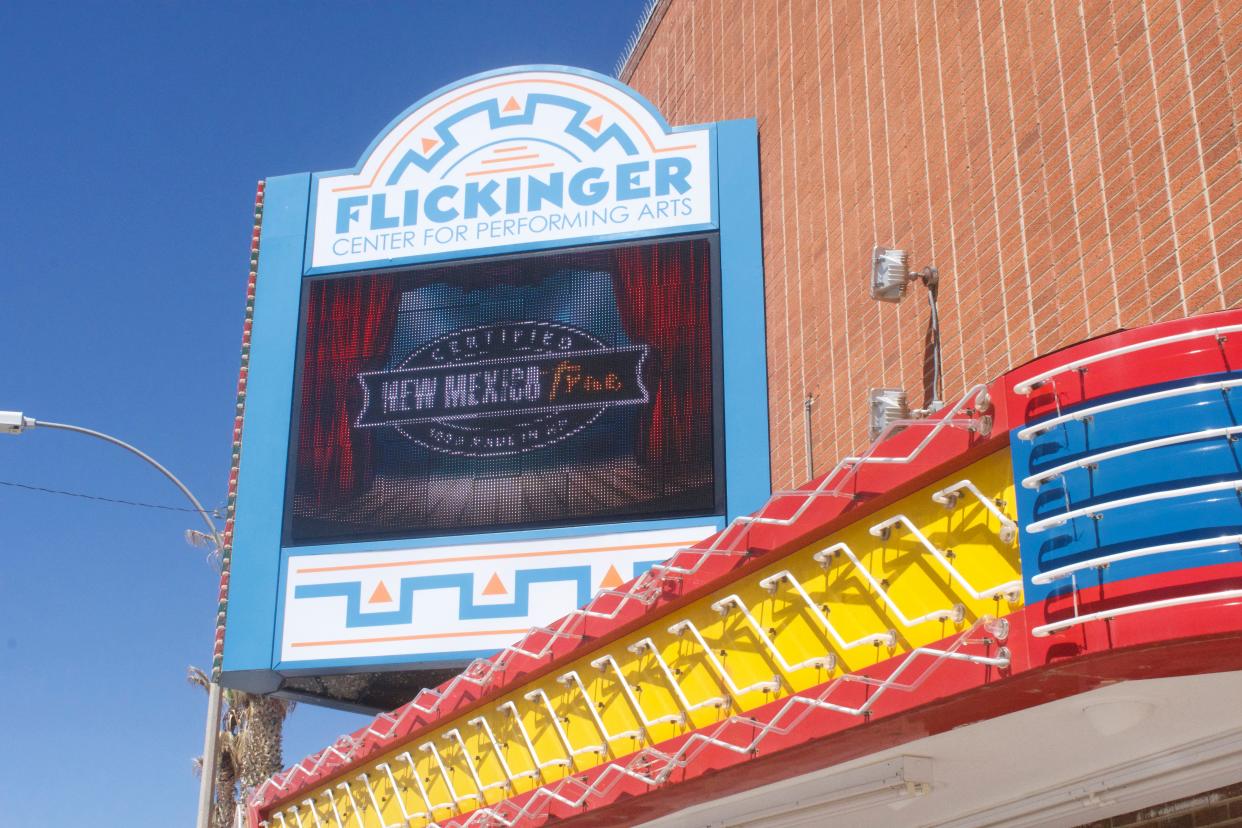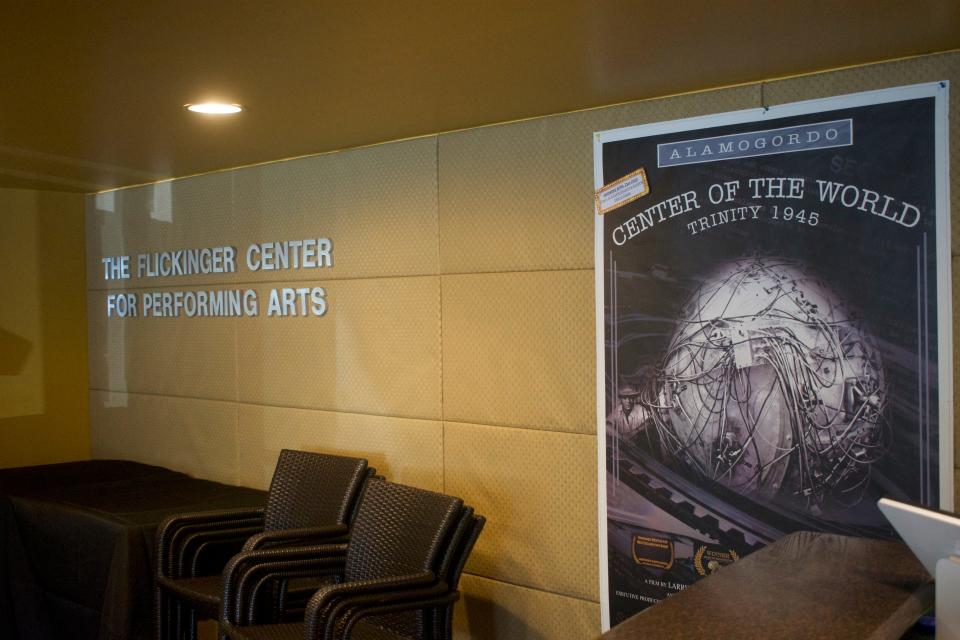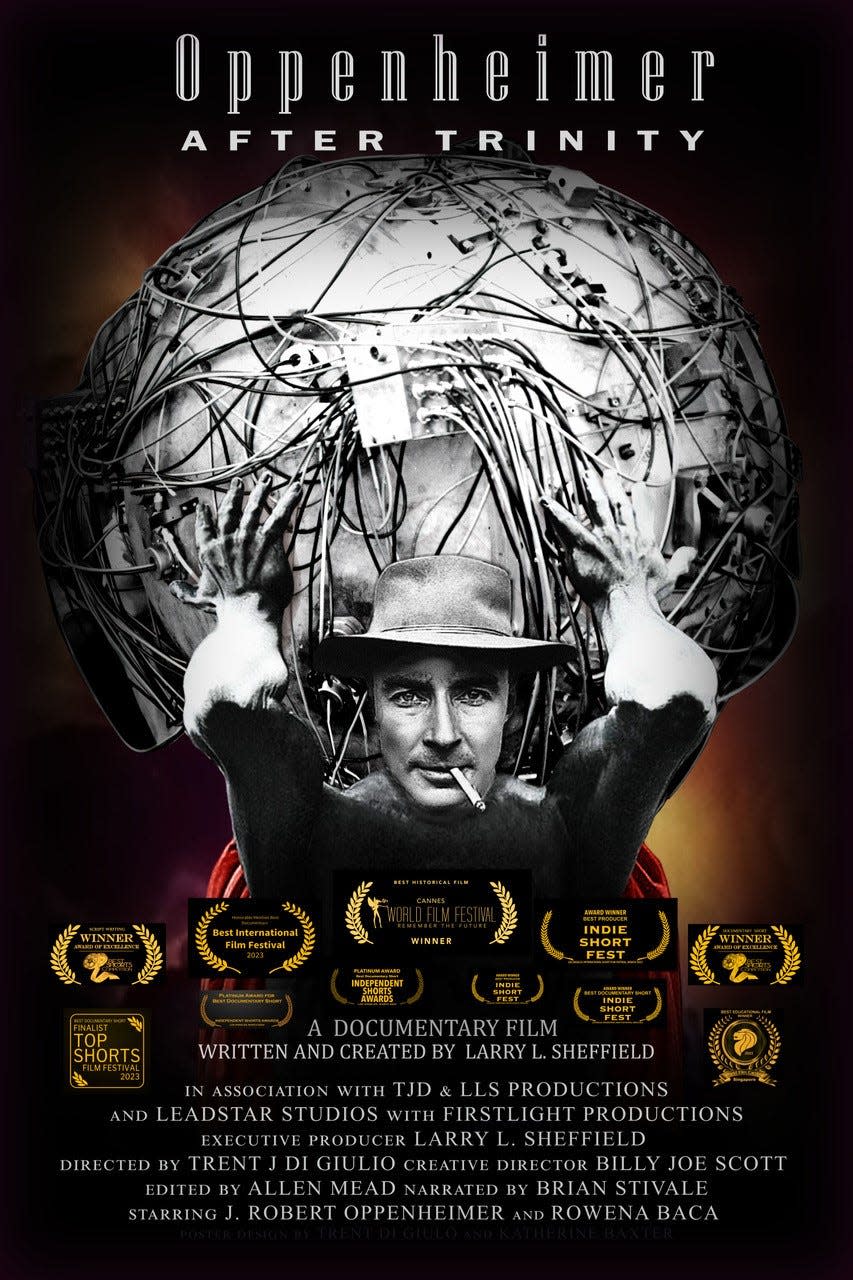Documentaries explore history of Manhattan Project in New Mexico, debut in Alamogordo

Filmmaker Larry Sheffield and the Flickinger Center presented two documentaries, "Alamogordo, Center of the World, 1945," shown on Friday, April 21 and" Oppenheimer After Trinity," that will be shown Friday, May 19 at 7 p.m.
The films dive into the events before and during the Manhattan Project.
Sheffield created a trilogy of documentaries that cover the "past, present and future" of The Manhattan Project. Two of the documentaries were released while the third film is still in the works. The third film will cover the 'future' aspect of the Manhattan Project.
Sheffield presented "Alamogordo, Center of the World, Trinity 1945" for the films bi-annual presentation at the Flickinger Center on Friday, April 21. According to Sheffield, the first documentary is what started the idea for the trilogy project in 2019.
The Manhattan Project was a WWII government research and development project that resulted in the first nuclear weapons testing and use.
The U.S. conducted its first atomic bomb test at the Trinity Site in southeast New Mexico as part of the project.

According to Brittanica, after the nuclear bomb dropped at the Trinity site in Alamogordo, it was followed by a mushroom cloud that stretched 40,000 feet. The bomb created a power that was equal to nearly 20,000 tons of trinitrotoluene (TNT).
Although the area was remote and sparsely populated, the people that did live there and those who continue to are still affected.
The Tularosa Basin Downwinders Consortium is a nonprofit that still feel the impacts to this day within decades of family lines.
"I have tried very hard to talk about our group in New Mexico who has not had their day in court, so to speak, and bring the folks from Nevada to help collaborate with the New Mexico Downwinders consortium to bring an avenue for people focusing on what happened," Sheffield said.
"When we presented the film in Las Vegas, Nevada, we had an entire room filled with retired atomic workers, and after the bomb left New Mexico, Nevada is where the next decade of nuclear testing happened, those folks spoke about how they were proactive on getting government assistance from injuries they sustained in their employment during this particular endeavor."

More: Tularosa Basin Downwinders honor those affected by Trinity Site nuke tests in New Mexico
Sheffield said the second film, "Oppenheimer after Trinity" won four film festival awards.
The film was a winner at the Indie Short Fest, in Los Angeles, California, for “Best Documentary Short,” as well as a winner for "Best Producer," Platinum award at the Independent Short awards in Los Angeles, California. It also won "Outstanding Achievement" at the Royal Society of Television and Motion Picture, in West Bengal, India.

"We started out doing the first film with an intention to show the relationship between Alamogordo and the Trinity Site where the first atomic explosion happened," Sheffield said. "First film is great, but we found many stories that continued to unravel so we thought we could do it in a second film, but we had so much content and this is such a complex subject, that we decided to make a trilogy."
With much content covered according to Sheffield, a few of the community members like, Mary Martinez, were curious why there may not have been context on Downwinders in "Center of the World" and hope that there will be in the following two films.
Martinez is also a member and founder of the Tularosa Basin Downwinders Consortium and had been looking forward to this trilogy.
"The first film, I know is part of a trilogy but this first film said nothing at all about people who have been aversely affected, so it saddened me that, that was the case. I have not seen the second one so I don't know if that will still be the case." Martinez said.
Martinez said she had the opportunity to speak to Sheffield and was told that in the future documentaries there will be more discussed about those affected. She said she "eagerly" awaits the next two films.
Sheffield said the goal is to get the trilogy on streaming platforms.
"I don't want to say they'll be on Netflix because we haven't spoken to any one from Netflix but there are great streaming platforms that love documentaries so if all else fails, we are definitely going to have them on Amazon Prime," Sheffield said.
The second documentary “Oppenheimer after Trinity” will premiere at 7 p.m., May 19 at the Flickinger Center. Sheffield said the second film focused on the events before, during and after the Trinity explosion.
"We talk a whole lot about Alamogordo in the second documentary and there is some footage that no one has found that we put in the second film," Sheffield said.
The third part of the trilogy speaks about bringing German scientists to the U.S., Operation Paperclip, and testing V2 rockets at the same bombing range as the previous films, which is now White Sands Missile Range.
"We are about 50 percent finished with the third film, and once it's past that percentage, we just keep tweaking it, so I am hoping for us to have it out by September 1 of this year," Sheffield said. "I want my films to reflect the historic and accurate events that happened. My films are just the facts. It fills the actual story itself."
Although the first film covered the facts and background of the Manhattan Project, Martinez still hopes that Sheffield will reach out further to Tularosa Basin Downwinders Consortium and dig into what the organization is all about.
"My hope is that Sheffield will delve a little more into our group. We, as a nation are not recognizing the negative affects that happened, if we don't recognize that we are bound to repeat it all again," Martinez said.
Juan Corral can be reached at JCorral@gannett.com or on twitter at @Juan36Corr.
This article originally appeared on Alamogordo Daily News: Documentaries explore history of Manhattan Project in New Mexico

